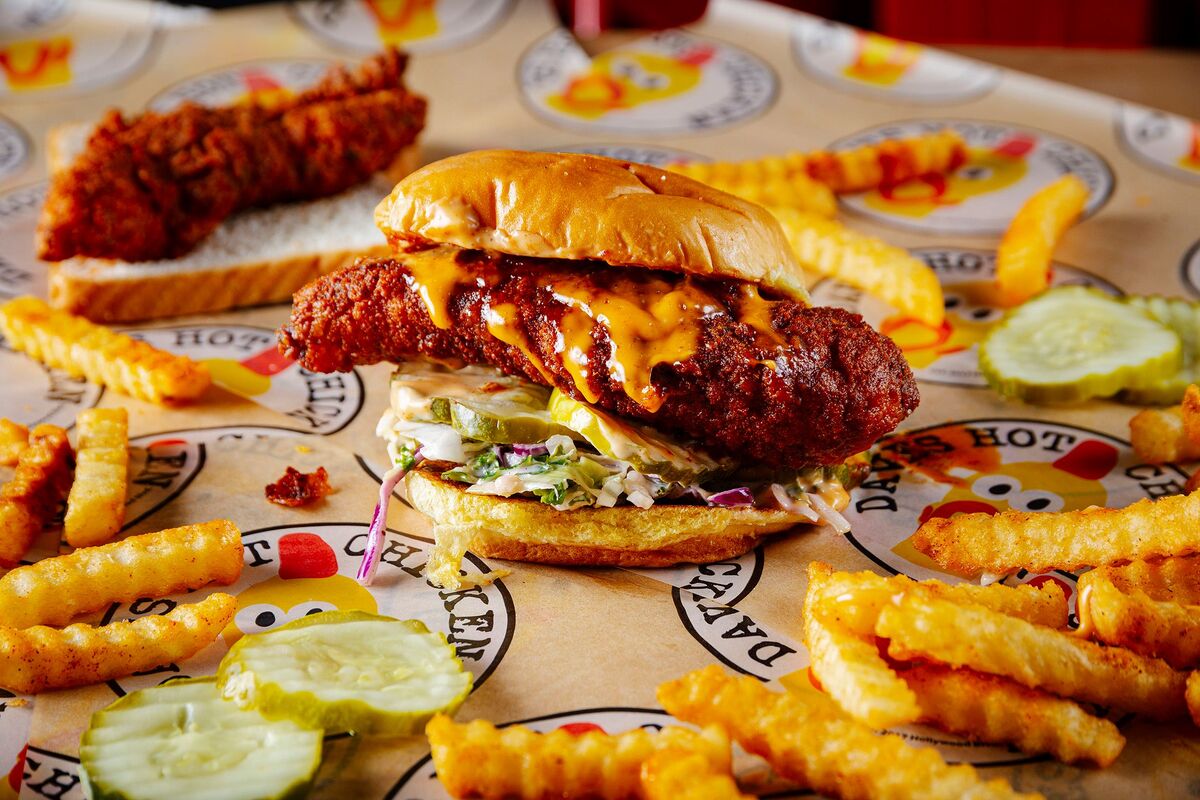Hospitality goes to the polls
With yet another general election around the corner, Emma Lake picks out the policies that are most important to our industry
On 12 December the nation will once again head to the polls to elect a new government. Unsurprisingly, it has been an election campaign dominated by Brexit, the issue that has paralysed Parliament since the referendum in 2016. However there are other issues that the hospitality industry urgently needs to be addressed – perhaps most crucially the crippling business rates that have led many operators to permanently shut their doors.
In its own manifesto, UKHospitality asked that, whatever our government looks like on 13 December, it works with the industry to help it revitalise towns, provide fulfilling careers and promote the UK.
Chief executive Kate Nicholls said: “The sector employs more than 3.2 million people and generates over £130b in turnover every year. We are the third-largest private sector employer in the country. Hospitality is crucial to tourism, high streets, seaside towns and communities. We underpin investment and regeneration and we help attract inward investment and export earnings.”
There are signs across the parties that some of the industry’s concerns have been taken into account, with all proposing a review or replacement of business rates; but in other areas, such as future migration policies, there is far less consensus.
The Caterer has read through the manifestos and picked out the policies that will be of particular importance to the industry.
###The Conservative party
Summary Get Brexit done and end austerity.
Business obligations and tax
- A fundamental review and a reduction of business rates. This will be done via an increase to the employment allowance for small businesses – potentially affecting half a million firms.
- A clampdown on late payments and strengthening the role of the small business commissioner.
- Creation of a national skills fund to provide education funding to individuals and SMEs.
- Creation of a single employment enforcement body to crack down on employers abusing employment law, whether by taking workers’ tips or refusing them sick pay.
- A pledge not to raise income tax, national insurance, VAT or corporation tax.
- An increase in the national insurance contributions threshold to £9,500 in 2020.
Brexit and immigration
- Get Brexit done by January 2020, with a commitment not to extend the transition period beyond December 2020.
- An end to free movement and the introduction of an Australianstyle points immigration system, prioritising high-skilled workers, most of whom must have secured a job before entry.
- EU citizens who came to the UK before Brexit will be allowed to stay and their existing rights will be guaranteed.
Food and the environment
- The introduction of a single-use plastic levy.
- Producers to pay the costs of dealing with the waste they create.
- The UK to be carbon-neutral by 2050.
Education and training
- Improve the working of the apprenticeship levy.
Other
- One hundred towns to receive a fund to improve their economies.
- Every home and business to have access to full fibre and gigabit-capable broadband by 2025.
###The Labour party
Summary Dramatic increases to workers’ rights and public sector spending.
Business obligations and tax
- Review the option of replacing business rates with a land value tax on commercial landlords.
- Introduce a ‘real living wage’ of at least £10 an hour for all workers aged 16 and over.
- Two percentage point rise in corporation tax to 21% in April 2020, increasing to 24% in 2021 and 26% in 2022.
- Elected ‘worker-directors’ to make up one-third of company boards.
- Requirement for large companies to set up inclusive ownership funds, with 10% of the business owned collectively by employees.
- A clampdown on late payments, including banning late payers from public procurement.
- Ban on zero-hour contracts.
- Ban on unpaid shift breaks.
- Remove restrictions on trade unions.
- Reduce the working week to 32 hours within a decade.
- All employers with more than 250 employees will be required to obtain government certification on gender equality or face further auditing or fines.
- Increase in maternity leave from nine to 12 months and a doubling of paternity leave to four weeks.
Brexit and immigration
- To renegotiate the withdrawal agreement within three months and hold a second referendum in six months.
- The introduction of an immigration system that would fill skill or labour shortages.
- EU nationals will be given the automatic right to continue living and working in the UK.
Food and the environment
- A national food commission would be established to pursue sustainable food policy.
- Producers will be responsible for the waste they create and the full cost of recycling or disposal.
- Net zero-carbon energy system within the 2030s.
Education and training
- Increase the training schemes under the apprenticeship levy.
Other
- List pubs as assets of community value, so community groups have the first chance to buy when under threat of closure.
- Nationalisation of full-fibre broadband roll-out with free access to every home and business in the UK by 2025.
###The Liberal Democrats
Summary Stop Brexit.
Business obligations and tax
- Replace business rates in England with a commercial landowner levy, based solely on the land value of commercial sites.
- Enable local authorities to bring in tourist levies to fund local infrastructure.
- Establish a prompt payment code, to which all government agencies, contractors and companies with more than 250 employees will sign up to.
- All companies with more than 250 employees to have at least one employee on their board.
- Restore corporation tax to 20%.
- Simplify business taxation.
- Establish an independent review to consult on a genuine living wage.
- Flexible working for all, unless there are significant business reasons why not.
- 20% higher minimum wage for those on zero-hour contracts. Zero-hour workers will have the right to request a fixed-hours
- contract after 12 months.
- New start-up allowance for new business owners.
- Strengthen the ability of unions to represent workers effectively.
Brexit and immigration
- Revoke Article 50.
- Replace Tier 2 work visas with a more flexible, merit-based system.
- Create a two-year visa for students to work after graduation.
Food and the environment
- Introduce a national food strategy to promote healthy, sustainable, affordable food.
- A net-zero climate by 2045.
Education and training
- A £10,000 ‘skills wallet’ for every adult to spend on education and training courses, divided and paid at ages 25, 40 and 55.
- Expansion of high-quality apprenticeships.
Other
- Create a department of digital, culture, media, sport and tourism.
- Scrap rules that allow developers to convert offices and shops into residential properties without planning permission.
###The Scottish National Party
Summary A better, independent Scotland.
Business obligations and tax
- VAT reduction for the hospitality sector.
- A freeze on national insurance contributions and VAT.
- Devolution of employment powers.
- Statutory living wage to increase to at least the level of the real living wage.
- Increased protections for zero-hours workers.
- An increase in the Employment Allowance.
- Increased worker representation on company boards.
- Legal protections to ensure small businesses are paid on time.
- Fines for businesses that fail to meet equal pay standards.
Brexit and immigration
- A second referendum with remain on the ballot paper.
- Guarantees on the rights of EU citizens in the UK and the devolution of immigration powers.
Food and the environment
- Firms to include climate change-related disclosures in their annual reports.
Other
- A second Scottish independence referendum.
- Access to superfast broadband for every home and business in Scotland.
###The Green Party of England and Wales
Summary Environment first.
Business obligations and tax
- Replace business rates with land value tax.
- Living wage increase to £12 an hour, including for workers aged between 16 and 21.
- Maximum wage paid in any business should not be more than 10 times that paid to the lowest-earning employee.
- Gig economy workers to have job security and receive sick leave, holiday pay and pension provision.
- Requirement on employers to recognise any union chosen by its workforce.
Brexit and immigration
- A ‘people’s vote’ to decide the way forward on Brexit, in which the Green Party will campaign for remain.
- Automatic settled status for EU citizens and their families living in the UK.
- A new immigration system with no minimum income rules for visas.
Food and the environment
- Reduce climate emissions to net zero by 2030.
- Ban the production of single-use plastics in packaging and introduce levy on plastic bottles, single-use plastics and microplastics.
- Manufacturers and retailers to pay the full cost of recycling and disposing of their packaging.
- Tax on meat and dairy products.
Education and training
- Small business to receive free energy-efficiency training.
###The Brexit Party
Summary Brexit and a political revolution.
Business obligations and tax
- Replace business rates with reductions funded by an online sales tax.
- Reduce import tariffs on certain foods.
- Make companies with pre-tax profits of less than £10,000 exempt from corporation tax.
Brexit and immigration
- A “clean-break Brexit” with no extended transition period.
- Reduce annual immigration through a points-based system.
Education and training
- Scrap the apprenticeship levy.
###Plaid Cymru
Summary Second referendum and more powers for Wales.
Business obligations and tax
- Reverse planned cuts to corporation tax.
- Increase employee rate of national insurance from 2% to 4% for high earners.
Brexit and immigration
- Second referendum.
- Permanent residence rights to all EU citizens in the UK before Brexit day.
- Devolution of migration policy, so Wales can set its own targets.
Food and the environment
- Ban single-use plastics and make Wales a plastic-free nation by 2030.
- Ban imports of agri-commodities from illegally deforested land.
- A zero-waste Wales by 2030.















